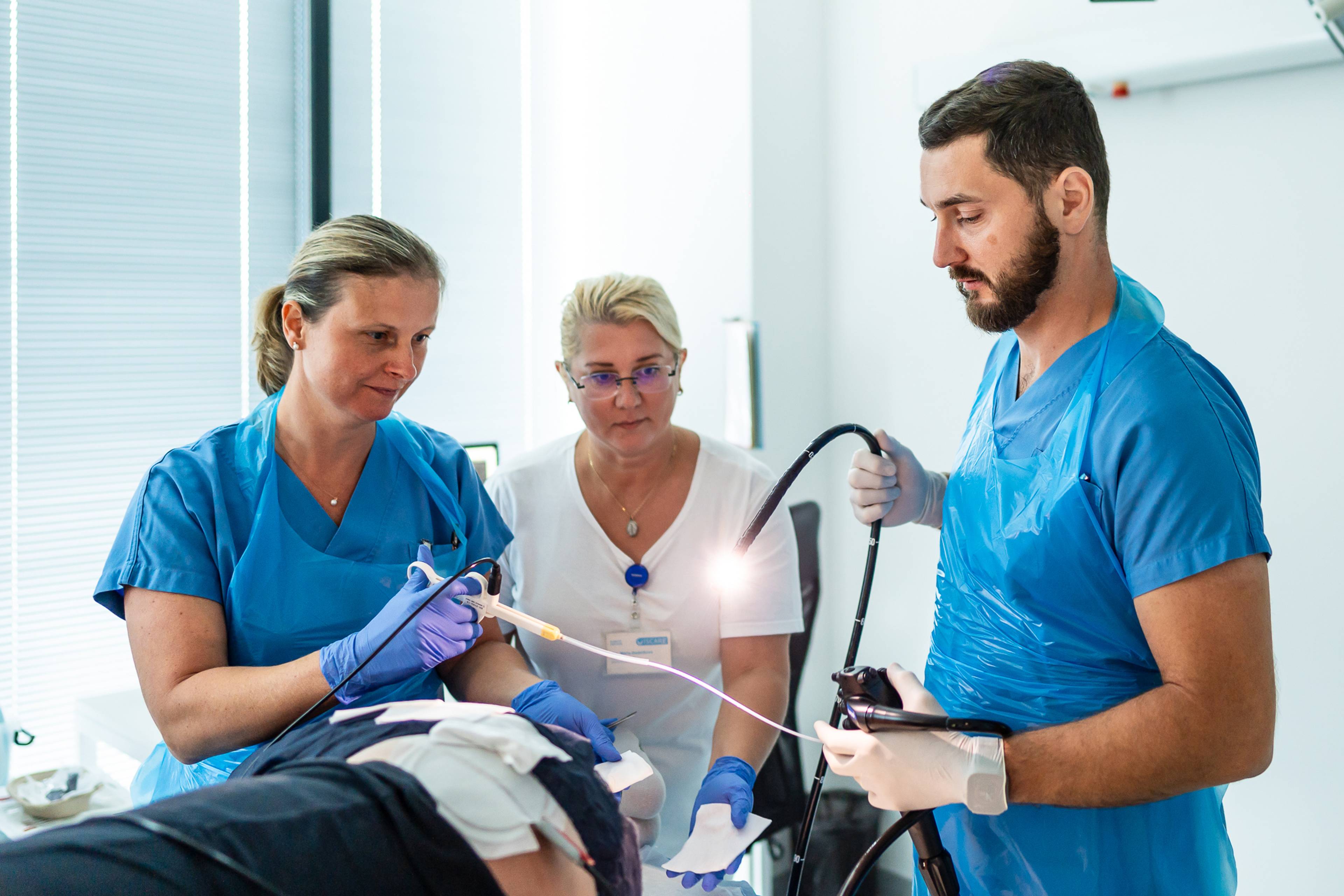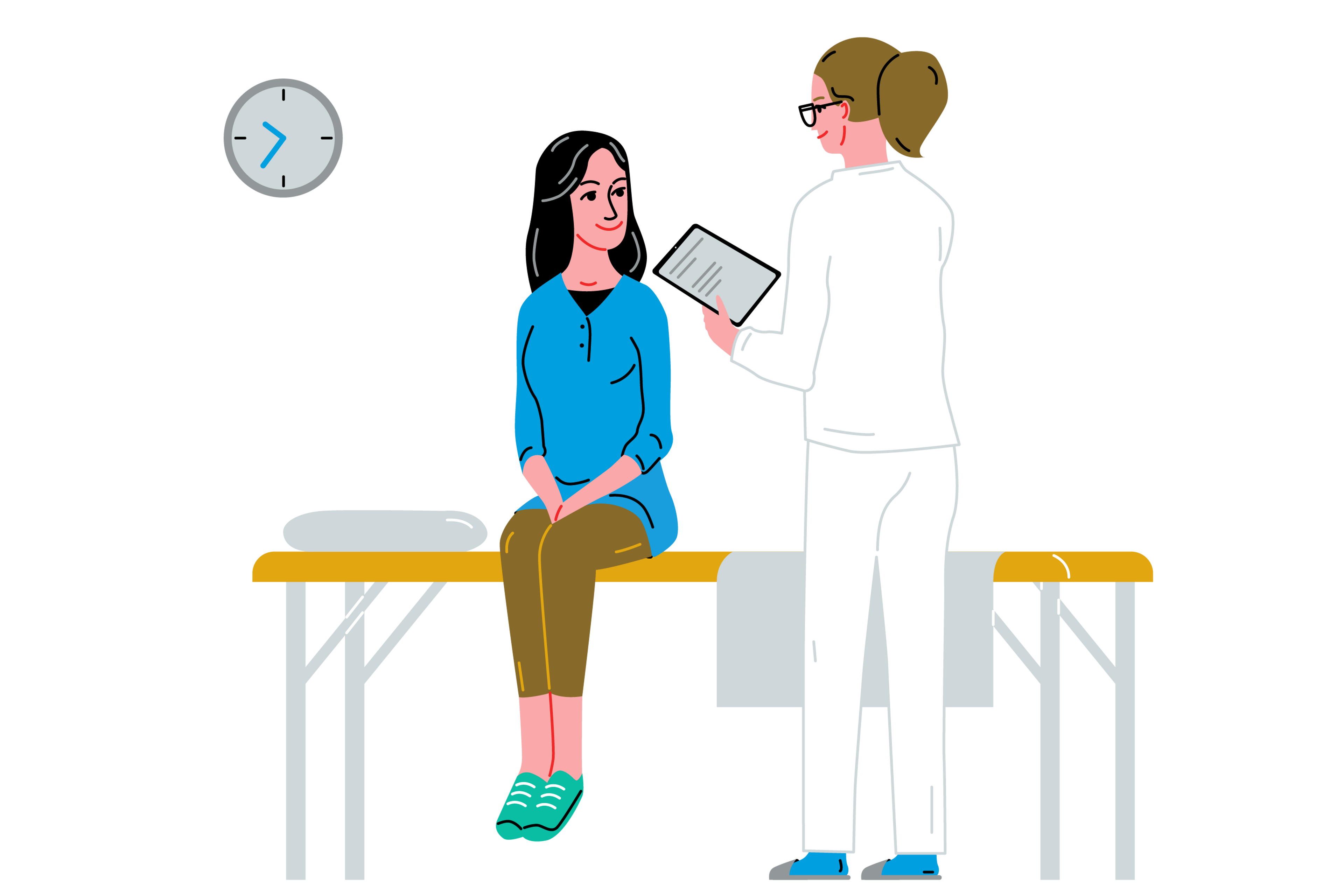Screening colonoscopy
Preventive colonoscopy refers to the examination of the large intestine using a flexible endoscope in asymptomatic individuals with no increased risk of colorectal cancer.
The patient therefore has no history of inflammatory bowel disease (IBD), colorectal cancer, or polyps, and there is no history of CRC in close relatives under the age of 60.
The aim of the examination is to detect and remove early precancerous lesions and thus prevent the development of colorectal cancer, or to diagnose CRC at an early, more easily treatable stage.
In colorectal cancer screening in the Czech Republic, colonoscopy is used as a stand-alone examination method (known as screening colonoscopy) or follows a positive fecal occult blood test (FOBT) result, known as FOBT+ colonoscopy. Both methods are currently performed in the Czech Republic from the age of 50. The term preventive colonoscopy includes both screening and FOBT+ colonoscopy.
Facts
- Detecting and removing precancerous stages (polyps, early lesions) during colonoscopy can prevent the development of colon and rectal cancer.
- The patient's prognosis depends on the stage of the disease at the time of diagnosis.
- More than 95% of patients with early forms of colorectal cancer are completely cured preventive screening for early forms of the disease in asymptomatic individuals is the most effective method, significantly improving patient prognosis and reducing mortality from this disease the national screening program was launched in the Czech Republic in 2000.
- ISCARE is one of the selected centers for colorectal cancer screening.
The most effective method is colonoscopy, which is covered by public health insurance for people over 50 years of age.
Alarming facts
- The Czech Republic is among the countries with the highest incidence of colon and rectal cancer.
- More than 8,000 people in the Czech Republic are diagnosed with colorectal cancer every year.
- More than 4,000 people in the Czech Republic die of colorectal cancer every year.
Take a look
What it looks like
Gastroenterology ISCARE






